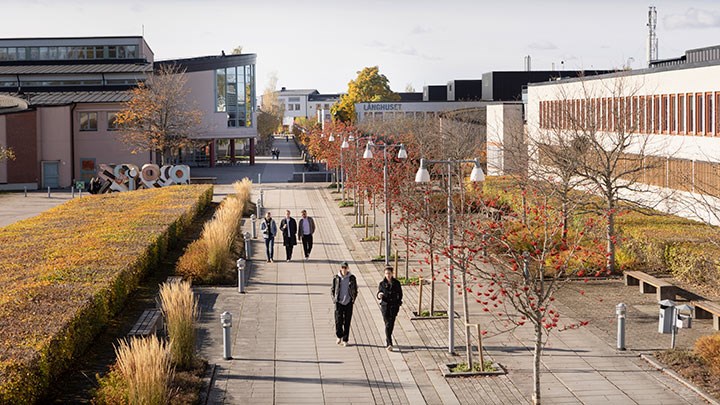Vice-Chancellor’s blog: Three letters that could increase academic freedom

Photo: Terése Classon Sundh
Free and responsible academic citizens of the scientific republic.
That is how one might summarise two very interesting talks given at Örebro University last week.
The first was presented by Professor Julie Gold, who described how Chalmers University of Technology has extended its career-development system to include different components of the concept of “academic citizenship” in matters of recruitment and promotion. In the sense referred to here, academic citizenship involves responsibilities that extend beyond regular teaching and research activities. It can be defined as engagement and activities that contribute to a well-functioning academic environment and smooth collegial operations at the school, the home university and within academia outside the home institution.
As academic citizens, researchers and teaching staff have a considerable responsibility for developing the academic environment. To do so, a high degree of presence in the workplace is essential. It is especially important that more senior teaching staff and researchers are on site to guide students and doctoral students, as well as junior researchers and teachers. Digital meetings serve their purpose, for sure, but they are rarely particularly creative – and they do not build a solid collegial academic culture. This culture is in turn crucial if we are to contribute to the international academic community – the scientific republic. Academic citizenship thus places great demands on the institutional local environment, on one’s own discipline – nationally and internationally – and on the willingness to take on academic leadership roles.
The second talk was given by Professor Shirin Ahlbäck Öberg from Uppsala University and dealt with the conditions for “academic freedom”. It requires both “institutional autonomy” and freedom for the individual to select research problems, methodology and ways in which to publish results. The protection of the freedom of scientific research is very clearly laid down in the first chapter, section 6 of the Higher Education Act, while education unfortunately does not yet enjoy the same kind of protection.
Section 6 also provides that in the operations of higher education institutions, the general principle must be that academic freedom is to be promoted and protected. The Swedish wording here is rather inward-looking, suggesting that it is the higher education institution itself that in their internal operations must safeguard academic freedom. This imposes far-reaching demands on vice-chancellors and the other academic leaders. Meanwhile, corresponding demands are not expressed towards policymakers, business, media, religious communities, or others who may seek to control research and education in an undue manner. A simple rewording from “in” to “for” would shift the perspective and impose the same demands on both internal and external stakeholders to take responsibility for safeguarding academic freedom at our universities: for the operations of higher education institutions, the general principle must be that academic freedom is to be promoted and protected.
Only as free and responsible academic citizens are we in the long term able to contribute to developing research and higher education, for the benefit of science and society alike.
Johan Schnürer
Vice-Chancellor
